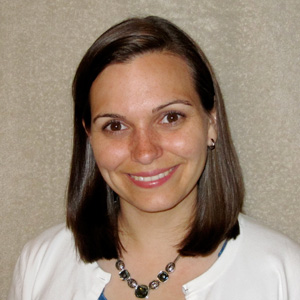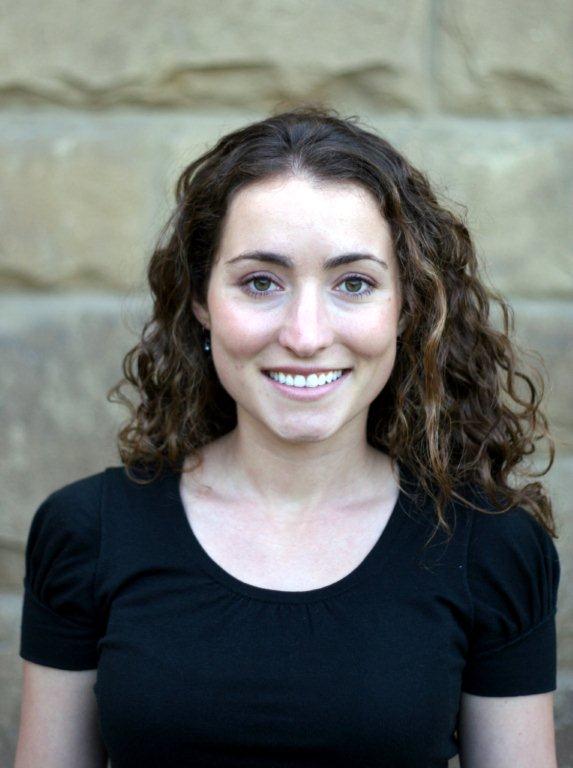Two UW Public Health Researchers Win NIH Early Independence Awards
 Out of 10 inaugural Early Independence Awards, the National Institutes of Health (NIH) has awarded not just one, but two to UW researchers in the School of Public Health. Daniela Witten, assistant professor of Biostatistics, and Nicole Basta, a PhD candidate in the Department of Epidemiology, have won five-year grants totaling more than $1.5 million each to support their research.
Out of 10 inaugural Early Independence Awards, the National Institutes of Health (NIH) has awarded not just one, but two to UW researchers in the School of Public Health. Daniela Witten, assistant professor of Biostatistics, and Nicole Basta, a PhD candidate in the Department of Epidemiology, have won five-year grants totaling more than $1.5 million each to support their research.
The NIH Early Independence Awards are designed to accelerate the entry of outstanding junior investigators into independent researcher positions. The program is part of an NIH-wide effort to support investigators early in their careers, allowing them to leapfrog over the traditional post-doctoral training period. NIH says it wants to capitalize on the "creativity, confidence, and energy" of certain young scientists who have the drive and maturity to flourish independently.
 Nicole Basta – Investigating the Effectiveness of a New Meningitis Vaccine in Mali
Nicole Basta – Investigating the Effectiveness of a New Meningitis Vaccine in Mali
When Nicole Basta, 30, received the news that she had won one of 10 coveted Early Independence Awards from NIH, she was a few weeks shy of receiving her PhD here in epidemiology. The award will allow her to pursue a field she is passionate about.
"My interest in infectious diseases goes back many years. Poor health can create so many barriers to achieving one's goal and aspirations. I wanted to work in a field where I could play a role in improving health worldwide. Vaccines are one of the most powerful tools we have to prevent diseases on a global scale," says Nicole.
The grant will support her research evaluating a new vaccine for bacterial meningitis in Mali, which is part of the belt stretching across Africa from Senegal through Ethiopia where the disease has broken out regularly for more than 100 years. The illness has a 10% mortality rate. Young children have the highest risk for meningococcal disease, but 60% of cases occur in adolescents and adults.
The vaccine was developed specifically for the type of meningitis that primarily affects this area of Africa. Over five years, Nicole will study a cohort of people in Bamako who first received the vaccine in December 2010, evaluating the duration of the protection by measuring the persistence of antibodies in each person.
She cites Betz Halloran, professor of Biostatistics, adjunct professor in Applied Mathematics, and adjunct professor in Epidemiology at UW as a great mentor who was instrumental in getting her to Mali for the first time.
Nicole is currently a research associate at the Fred Hutchinson Cancer Research Center, working on infectious diseases. She graduated magna cum laude from Princeton University with a bachelor's degree in Ecology and Evolutionary Biology, earned her master's degree in Epidemiology at the University of Cambridge in England, and is about to receive her doctorate here in Epidemiology. She also spent two years as a fellow with the Florida Department of Health Epidemic Intelligence Service, investigating disease outbreaks.
 Daniela Witten – Developing Tools to Enable Personalized Treatment of Disease
Daniela Witten – Developing Tools to Enable Personalized Treatment of Disease
Thanks to the biostatistical research from Daniela Witten, 27, physicians may be able to determine which cases of a disease need to be treated aggressively, or perhaps not at all.
Her project is centered on analyzing "high-dimensional data" – large-scale data coming out of biology that has tens of thousands, even millions, of measurements. DNA sequence data and gene expression data, broadly known as genomics, are examples. She develops statistical tools to make sense of such large data sets, tools that can be used to personalize treatment of disease.
Daniela grew up in New Jersey in a family of scientists; she planned to major in foreign languages but ended up double-majoring in math and biology. "I decided my hand-eye coordination was not good enough for lab work as a biologist, but I liked using mathematical tools to answer biology problems." As a doctoral candidate in statistics at Stanford, she found a mentor in Robert Tibshirani, professor of Statistics and of Health Research and Policy.
Daniela is currently assistant professor in the Department of Biostatistics. She is also an adjunct assistant professor in the UW Department of Statistics and affiliate investigator at the Fred Hutchinson Cancer Research Center. She received her bachelor's degree with Honors and Distinction in Mathematics and Biology and a doctorate in Statistics from Stanford University. She was a National Defense Science and Engineering Graduate Fellow and held the Genentech Endowed Professorship in Biostatistics for 2010-11. In addition to the NIH Early Independence Award, Daniela also won the David Byar Young Investigator Award from the American Statistical Association earlier this year.
